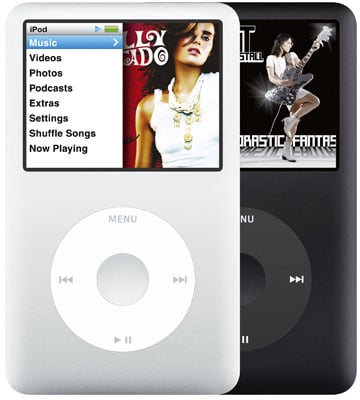
Apple’s iPod line of portable mp3 players is one of the most successful branding efforts of the decade. To many people, the terms “iPod” and “mp3 player” are synonymous. About a year ago I walked into a retirement home carrying a small new digital alarm clock for my grandmother. Along the way, my mother introduced me to numerous of my grandmother’s elderly friends, all of whom invariably asked if the clock I was holding was some kind of iPod. The iPod has in many ways become the epitome of technological consumerism.
The iPod’s dominance of the portable music player lexicon is unsurprising, as it stands almost unchallenged as the player of choice for today’s tech-savvy trend-followers. Searching through both retail stores such as Best Buy and Circuit City, as well as online vendors such as Amazon.com, reveals that there is in fact almost no competition to Apple’s ubiquitous product. Other companies do manufacture portable music players but none of these stand directly in competition with the iPod. These players are typically low-budget models with limited storage capacity and features. The fact that I have heard of none of these brands probably means they have little to no effective marketing, and are instead focusing on undercutting Apple through sales to shoppers who cannot afford or do not see the point in paying for Apple’s high-end models. In Apple’s field of high-priced, high-capacity, trendy music players, the only real competition is Microsoft’s Zune, a failing effort surviving on the strength of its mother company. Some would argue that this is a natural result of capitalism, namely the triumph of a superior product in a particular sector of the market. Perhaps this is the case, but I find it more interesting as a result of consumer capitalism and the triumph of the superior brand.
The iPod has become its own industry, with literally hundreds of accessories designed for it by dozens of companies, iPod-specific docks appearing on a wide range of home electronics, and even direct iPod-specific connections being built into some automobiles. These products aren't made merely to facilitate the integration of portable music players with other devices, they are dependent on the success of the iPod and only the iPod. That a company and a product can be successful as the result of branding is nothing new to us, but the power of a brand to create an entire industry based on itself while preventing competing products from gaining any meaningful share of the market is a truly astounding feat of marketing.

No comments:
Post a Comment